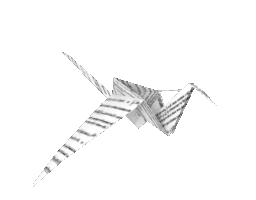All papers authored by Amalia Molinero

Refreshing results…



Gemma Comes,
Yasmina Manso,
Anna Escrig,
Olaya Fernandez-Gayol,
Paula Sanchis  ,
Mercedes Giralt,
Amalia Molinero
,
Mercedes Giralt,
Amalia Molinero  ,
Javier Carrasco,
Juan Hidalgo
Download from doi.org
,
Javier Carrasco,
Juan Hidalgo
Download from doi.org
 ,
Mercedes Giralt,
Amalia Molinero
,
Mercedes Giralt,
Amalia Molinero  ,
Javier Carrasco,
Juan Hidalgo
Download from doi.org
,
Javier Carrasco,
Juan Hidalgo
Download from doi.org


2014
Natalia Lago  ,
Albert Quintana,
Javier Carrasco,
Mercedes Giralt,
Juan Hidalgo
,
Albert Quintana,
Javier Carrasco,
Mercedes Giralt,
Juan Hidalgo  ,
Amalia Molinero
,
Amalia Molinero  Download from www.researchgate.net
Download from www.researchgate.net
 ,
Albert Quintana,
Javier Carrasco,
Mercedes Giralt,
Juan Hidalgo
,
Albert Quintana,
Javier Carrasco,
Mercedes Giralt,
Juan Hidalgo  ,
Amalia Molinero
,
Amalia Molinero  Download from www.researchgate.net
Download from www.researchgate.net

Belén Navia,
Beatriz Ferrer,
Mercedes Giralt,
Gemma Comes,
Javier Carrasco,
Amalia Molinero  ,
Albert Quintana,
Jocelyne Leclerc,
Benoit Viollet,
Rosa M. Señarís,
Juan Hidalgo
Download from www.researchgate.net
,
Albert Quintana,
Jocelyne Leclerc,
Benoit Viollet,
Rosa M. Señarís,
Juan Hidalgo
Download from www.researchgate.net
 ,
Albert Quintana,
Jocelyne Leclerc,
Benoit Viollet,
Rosa M. Señarís,
Juan Hidalgo
Download from www.researchgate.net
,
Albert Quintana,
Jocelyne Leclerc,
Benoit Viollet,
Rosa M. Señarís,
Juan Hidalgo
Download from www.researchgate.net

2009
Paula Pifarré,
Paula Pifarré,
Judith Prado,
Mercedes Giralt,
Amalia Molinero  ,
Juan Hidalgo,
Agustina Garcia
Download from onlinelibrary.wiley.com
,
Juan Hidalgo,
Agustina Garcia
Download from onlinelibrary.wiley.com
 ,
Juan Hidalgo,
Agustina Garcia
Download from onlinelibrary.wiley.com
,
Juan Hidalgo,
Agustina Garcia
Download from onlinelibrary.wiley.com


2007
Albert Quintana,
Amalia Molinero  ,
Rehannah Borup,
Finn Cilius Nielsen,
Iain L. Campbell,
Milena Penkowa,
Juan Hidalgo
Download from www.researchgate.net
,
Rehannah Borup,
Finn Cilius Nielsen,
Iain L. Campbell,
Milena Penkowa,
Juan Hidalgo
Download from www.researchgate.net
 ,
Rehannah Borup,
Finn Cilius Nielsen,
Iain L. Campbell,
Milena Penkowa,
Juan Hidalgo
Download from www.researchgate.net
,
Rehannah Borup,
Finn Cilius Nielsen,
Iain L. Campbell,
Milena Penkowa,
Juan Hidalgo
Download from www.researchgate.net


Albert Quintana,
Mercedes Giralt,
Amalia Molinero  ,
Iain L. Campbell,
Milena Penkowa,
Juan Hidalgo
Download from www.karger.com
,
Iain L. Campbell,
Milena Penkowa,
Juan Hidalgo
Download from www.karger.com
 ,
Iain L. Campbell,
Milena Penkowa,
Juan Hidalgo
Download from www.karger.com
,
Iain L. Campbell,
Milena Penkowa,
Juan Hidalgo
Download from www.karger.com

2006
Juan Hidalgo,
Milena Penkowa,
Carmen Espejo,
Eva M. Marti´Nez Ca ´ Ceres,
Martínez Cáceres Em,
Eva M. Martínez Cáceres,
§ Javier Carrasco,
Javier Carrasco,
Albert Quintana,
Amalia Molinero  ,
Sergi Florit,
Mercedes Giralt,
And Arantxa Ortega-Aznar
Download from journals.sagepub.com
,
Sergi Florit,
Mercedes Giralt,
And Arantxa Ortega-Aznar
Download from journals.sagepub.com
 ,
Sergi Florit,
Mercedes Giralt,
And Arantxa Ortega-Aznar
Download from journals.sagepub.com
,
Sergi Florit,
Mercedes Giralt,
And Arantxa Ortega-Aznar
Download from journals.sagepub.com




2004
Milena Penkowa,
Sergi Florit,
Mercedes Giralt,
Albert Quintana,
Amalia Molinero  ,
Javier Carrasco,
Juan Hidalgo
Download from www.researchgate.net
,
Javier Carrasco,
Juan Hidalgo
Download from www.researchgate.net
 ,
Javier Carrasco,
Juan Hidalgo
Download from www.researchgate.net
,
Javier Carrasco,
Juan Hidalgo
Download from www.researchgate.net

Christian Bjørn Poulsen,
Milena Penkowa,
Rehannah Borup,
Finn Cilius Nielsen,
Mario Caceres  ,
Mario Cáceres,
Albert Quintana,
Amalia Molinero
,
Mario Cáceres,
Albert Quintana,
Amalia Molinero  ,
Javier Carrasco,
Mercedes Giralt,
Juan Hidalgo
Download from www.researchgate.net
,
Javier Carrasco,
Mercedes Giralt,
Juan Hidalgo
Download from www.researchgate.net
 ,
Mario Cáceres,
Albert Quintana,
Amalia Molinero
,
Mario Cáceres,
Albert Quintana,
Amalia Molinero  ,
Javier Carrasco,
Mercedes Giralt,
Juan Hidalgo
Download from www.researchgate.net
,
Javier Carrasco,
Mercedes Giralt,
Juan Hidalgo
Download from www.researchgate.net


2003
Milena Penkowa,
Jordi Camats,
Hanne Hadberg,
Albert Quintana,
Santiago Rojas,
Mercedes Giralt,
Amalia Molinero  ,
Iain L. Campbell,
Juan Hidalgo
Upload
,
Iain L. Campbell,
Juan Hidalgo
Upload
 ,
Iain L. Campbell,
Juan Hidalgo
Upload
,
Iain L. Campbell,
Juan Hidalgo
Upload

Javier Carrasco,
Milena Penkowa,
Mercedes Giralt,
Jordi Camats,
Amalia Molinero  ,
Iain L. Campbell,
Richard D. Palmiter,
Juan Hidalgo
,
Iain L. Campbell,
Richard D. Palmiter,
Juan Hidalgo
 ,
Iain L. Campbell,
Richard D. Palmiter,
Juan Hidalgo
,
Iain L. Campbell,
Richard D. Palmiter,
Juan Hidalgo
Role of metallothionein-III following central nervous system damage
Download from doi.orgMissing publications? Search for publications with a matching author name.